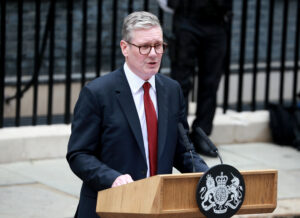People across the North will no longer be held back by a broken transport system and empty promises, the Prime Minister, Sir Keir Starmer, has said as he announced more funding to deliver the largest rail investment in the North in decades.
After years of false promises and underdelivery, the government is intent on delivering change working families will feel. The Prime Minister will today set out plans to make the Liverpool-Hull corridor an economic superpower – rivalling the Oxford-Cambridge arc – kickstarted with £1.7 billion this year.
This transformatory package to reboot the North’s creaking transport system means government more than double on local transport in the North compared to the South and London, delivering on its Plan for Change to boost living standards and provide security and certainty for working people across the country.
This comes on top of funding announced today:
- For the key rail line between Manchester, Huddersfield, Leeds and York, which has been plagued by disruptions and delays for years without a plan to fix it. The route will now be supported with £415 million in funding from government to restore its failing services.
- For local leaders to unleash their areas’ untapped potential with over £1 billion for the North to improve the transport services people use every day – backing regional mayors and ensuring decisions about the North sit with those who call it home. This comes alongside £270 million investment in bus services and £330 million in road maintenance across the North.
The funding, delivered working hand in hand with local leaders, will have a transformative impact on people’s lives, connecting the great towns and cities of the North that have been cut off from each other for far too long, holding back its potential.
The Prime Minister will make clear that these measures will better connect the North to support its thriving industries, unlocking growth in key sectors like Sheffield’s nuclear industry, booming fintech in Leeds, and cutting-edge life sciences in Liverpool. It will also support leading universities left hamstrung by poor connectivity while commuter towns and cities near London benefit from world-leading transport infrastructure.
(Pic: Yunex Traffic)






















